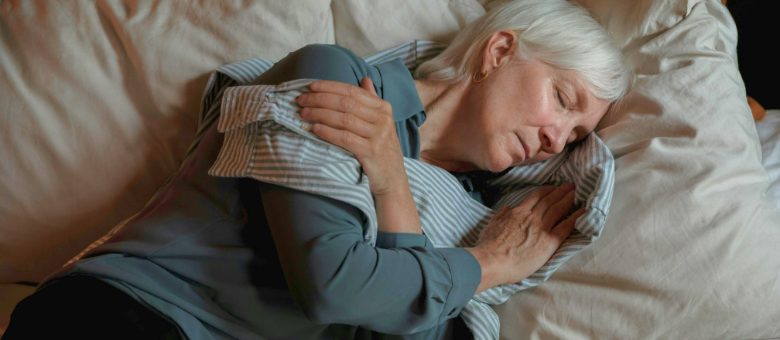
How to Monitor & Support Senior Sleep Patterns
A restful night’s sleep is one of life’s simplest and most enjoyable pleasures. However, it eludes many people as they get older. According to the American Academy of Sleep Medicine, 36% of women and 13% of men over 65 take 30 minutes to fall asleep – longer than it does for younger folks.
Whether you count sheep, listen to white noise, or practice breathing exercises before bedtime, lulling your body into a peaceful slumber is crucial at any age. But the need for Z’s can be even more important for an aging individual who needs those extra minutes to remain healthy and combat disease. Sleep deficiency can impact an older person’s social functioning, driving, learning, and focus. It can also take a toll on their physical, mental, and emotional health.
If you are a caregiver or want to monitor your own sleep habits, know that seniors, in particular, must establish healthy routines, exercise, and eat right to experience better sleep in their own lives. Check out some of the actionable tips below for good sleeping, and consider looking into the local resources in Lewisburg, PA, that are included in the list.
Establishing Healthy Routines for Better Sleep
Have you ever heard of sleep hygiene? It’s a phrase that refers to healthy sleep routines, such as having regular bedtime schedules and sticking to them. This is the first step that might help your older family member sleep more soundly. Aim to start getting ready for bed around the same time every night. This helps to regulate your internal clock, telling your body it’s time to go to bed.
A healthy bedtime routine can include:
- Reading for 30 minutes before bed
- Practicing guided meditation for relaxing breathing exercises
- Brushing your teeth and doing your nightly skincare routine
- Taking a warm bath or shower
- Listening to calming music, soundscapes, or an audiobook
Be sure not to consume caffeine at least six to eight hours before bedtime to avoid sleep disturbances. You should also stop drinking alcohol three hours before bed, avoid eating two hours before bedtime, and stop drinking any fluids an hour before going to sleep. This is known as the 3-2-1 sleep rule.
The Role of Nutrition and Activity in Sleep
A well-balanced diet and plenty of physical exercise can help promote better sleep quality in older adults, too. With caution, move your body every chance you get throughout the day, such as going for a brisk morning walk, gardening, or attending a senior-centric fitness class. Follow appropriate guidelines according to any physical limitations while doing so, however, so you don’t injure yourself.
You should also nourish your body from the inside out. Nutritious foods can also help you fall asleep faster. Consume foods rich in tryptophan or magnesium to feel calm and relaxed. That’s why so many people need naps right after their Thanksgiving feast!
Sleep Disorders in Seniors
In addition to caring for themselves, seniors and their caregivers should understand the different disorders that might impact their sleep quality. These include:
- Insomnia
- Sleep-disordered breathing, like sleep apnea and snoring
- Movement disorders, such as restless leg syndrome
If you experience symptoms of any of these disorders, make an appointment with your healthcare provider.
Local Resources for Lewisburg, PA, Seniors
Here are sleep clinics in Lewisburg, PA, that can offer resources, guidance, and treatments for seniors with sleeping issues:
WellSpan Evangelical Sleep Center
3 Hospital Drive
Suite 202
Lewisburg, PA 17837
(570) 522-4275
270 Susquehanna Valley Mall Drive, Suite 100
Selinsgrove, PA 17870
(570) 768-4441
How Visiting Angels of Lewisburg, PA, Can Help
Visiting Angels of Lewisburg, PA, can help seniors with nighttime routines, create a safe, clean, and comfy bedtime environment, and monitor for changes in sleep patterns. If they notice anything out of the ordinary, our caregivers can let family or healthcare providers know.
Contact us today at 570-768-4747 to learn how our in-home caregivers can help you count more Zs.
